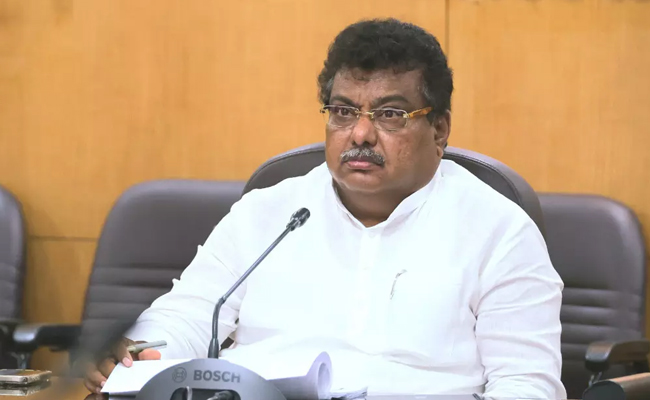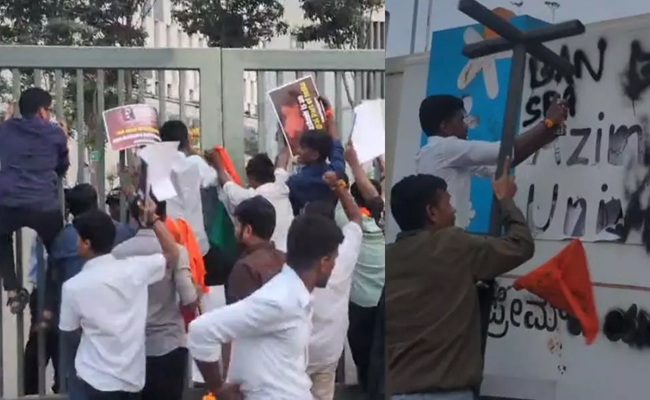Wellington (New Zealand), Feb 27: The hard-working and durable New Zealand fast bowler Neil Wagner has announced his retirement from test cricket at 37.
South Africa-born Wagner played 64 tests for New Zealand and will finish fifth on New Zealand's list of all-time test wicket-takers with 260 at an average of 37.
The left-armer likely was not going to be included in New Zealand's lineup for the first test against Australia, starting at the Basin Reserve in Wellington on Thursday and decided to retire from the five-day game.
Wagner made his test debut in 2012 and was a key figure in one of New Zealand's most successful eras, helping the team win the inaugural World Test Championship in 2022. He moved from South Africa to New Zealand in 2008 and quickly established himself in first-class cricket with Otago province.
In recent years Wagner pursued a sort of leg theory of continual short-pitched bowling which was contentious among some fans but invariably produced results. New Zealand won 34 of the 64 tests in which he played.
His strike rate of 52 is bettered only by Richard Hadlee among New Zealand bowlers who have taken more than 100 wickets.
One of Wagner's most notable performances was in bowling New Zealand to a one-run win over England after following on at the Basin Reserve last year. Wagner took 4-62 including the final wicket of James Anderson which fell with England one run short of a winning total.
"It's been an emotional week," Wagner said Tuesday. "It's not easy to step away from something you've given so much to and got so much out of, but it's now time for others to step up and take this team forward. I've enjoyed every single moment of playing test cricket for the Black Caps and am proud of everything we've been able to achieve as a team."
Wagner played under several New Zealand captains who all knew they could throw the ball to him when in need of a breakthrough or simply of someone to bowl for long periods.
"Neil's numbers are phenomenal but I don't think we can underestimate his contributions to the team when the chips were down and he found a way to create a wicket," New Zealand coach Gary Stead said. "His accuracy, execution and tenacity has been instrumental in many of our great test victories and he will always be remembered for his lion-hearted nature.
"Neil gave absolutely everything and we are certainly going to miss his energy and never give in' attitude."
Let the Truth be known. If you read VB and like VB, please be a VB Supporter and Help us deliver the Truth to one and all.
Bengaluru (PTI): Karnataka Minister M B Patil on Tuesday chaired meetings with industry representatives from the aerospace and defence, machine tools, auto/EV, and green energy sectors to discuss sector growth and government support measures.
The meetings were attended by leading industrialists and their representatives, with some participating virtually.
Speaking on the occasion, the minister for Large and Medium Industries said Karnataka is at the forefront of the country’s aerospace and defence sectors.
He noted that Suzuki and Toyota plan to launch aerial taxi services in Japan by 2028, with Bengaluru-based Sasmos supplying electrical equipment for the project.
Industrialists suggested introducing similar “fly-taxi” services in Karnataka through an appropriate policy, which Patil said would be examined seriously.
The minister highlighted the need to establish testing centres and Common Facility Centres for the aerospace and defence industries and assured that these facilities would be provided.
Suggestions were also made to prepare a comprehensive roadmap for sector growth.
Karnataka has urged the Central Government to approve Defence Corridor projects in the Bengaluru North–Kolar–Chikkaballapur and Dharawada–Vijayapura–Belagavi regions.
Industrialists also suggested a corridor between Bengaluru and Mysuru, Patil said.
He said Karnataka aims to become a hub for defence electronics manufacturing, with plans to establish a 200-acre Defence Electronics Park and a 100-acre Avionics and Sensor Park.
These projects will be implemented once the Special Investment Region is operational, and land availability will not be an issue.
On the machine tools sector, Patil said the industry has recorded an annual turnover of Rs 36,500 crore and is witnessing steady growth.
Large-scale exhibitions have increased demand, and the state must strengthen its capabilities to develop control systems for heavy machinery. One testing unit is already operational in Bengaluru, with another planned for Tumakuru. Expansion of vocational training institutes in industrial areas is also underway.
In the Auto and EV sector, Vision Group members highlighted the need for a network of dry ports and more EV charging stations across the state.
Patil noted that the Tata Group is manufacturing EV buses in Dharawada for nationwide supply. Plans for mini excavator production and export facilitation were also discussed, along with the establishment of a testing facility for two-wheeler EVs.
For the Green Energy sector, the group emphasised the need for a suitable policy on battery-based energy storage and the establishment of data centres.
Patil assured that the government will seriously consider all suggestions and respond positively.





_vb_21.jpeg)